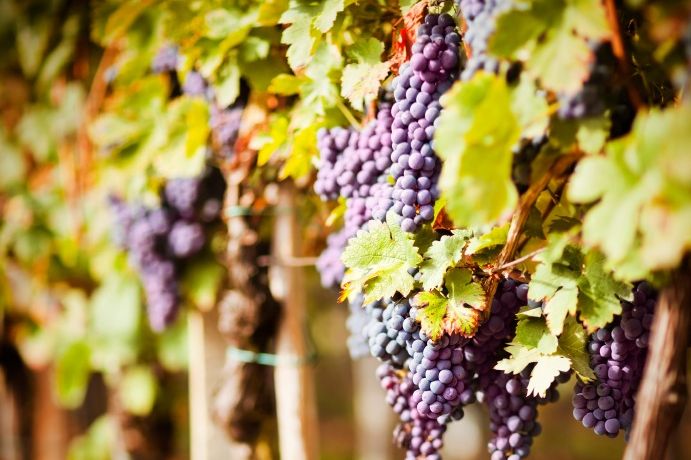The Feast of Tabernacles, during the fall harvest season, pictures 1,000 years of God’s Kingdom on earth. This will be a bountiful spiritual harvest.

Feast of Tabernacles in the Bible
The Feast of Tabernacles is first mentioned in Leviticus 23:34-35:
“Speak to the children of Israel, saying: ‘The fifteenth day of this seventh month shall be the Feast of Tabernacles for seven days to the LORD. On the first day there shall be a holy convocation. You shall do no customary work on it.’”
Verses 39-43 discuss more about this festival and its emphasis on living in booths or tabernacles—temporary dwellings—for the seven days.
The Feast of Tabernacles is also mentioned in Deuteronomy 16:13, 16; 31:10; 2 Chronicles 8:13; and Ezra 3:4.
Zechariah 14:16-19 shows that the Feast of Tabernacles will be observed even by the gentile nations after Jesus Christ’s return.
This festival is also known as the Feast of Ingathering (Exodus 23:16; 34:22), emphasizing its connection to the harvest at the end of the year.
The Feast of Tabernacles is also mentioned in the New Testament. Jesus Christ knew His life was in danger, so when it was time to travel to the Feast of Tabernacles (John 7:2), He told His unbelieving brothers, “You go up to this feast. I am not yet going up to this feast, for My time has not yet fully come” (verse 8). It was not yet time for Him to give His life.
“But when His brothers had gone up, then He also went up to the feast, not openly, but as it were in secret” (verse 10). In spite of the danger, Jesus considered it vitally important to observe this Feast. See more in our Bible story “Jesus and the Feast of Tabernacles.”
Feast of Tabernacles meaning
The apostle Paul described the biblical festivals as “a shadow of things to come” (Colossians 2:17). As we outline throughout this series of articles, we believe the feasts of the Lord summarize the steps in God’s plan to save humanity (see “Plan of Salvation: How God’s Festivals Reveal His Plan” and our “Feasts of the Bible Infographic”).
The final steps of God’s plan of salvation are described in Revelation 19 and 20.
With Jesus Christ returning and reigning as King of Kings (Revelation 19:11-16; pictured by the Feast of Trumpets) and Satan removed (Revelation 20:1-3; pictured by Atonement), the knowledge of God will spread around the world. Those who were faithful to God will serve with Jesus Christ in teaching and administering His way of life for 1,000 years (Revelation 20:4).
We believe the Feast of Tabernacles allows us to picture and rehearse this 1,000 years of peace.
Prophecies of the Millennium of peace pictured by the Feast of Tabernacles
Consider some of the prophecies of this time of peace and prosperity that will result from living God’s way of life:
“Now it shall come to pass in the latter days that the mountain of the LORD’s house shall be established on the top of the mountains, and shall be exalted above the hills; and all nations shall flow to it. Many people shall come and say, ‘Come, and let us go up to the mountain of the LORD, to the house of the God of Jacob; He will teach us His ways, and we shall walk in His paths.’
“For out of Zion shall go forth the law, and the word of the LORD from Jerusalem. He shall judge between the nations, and rebuke many people; they shall beat their swords into plowshares, and their spears into pruning hooks; nation shall not lift up sword against nation, neither shall they learn war anymore” (Isaiah 2:2-4).
“They shall not hurt nor destroy in all My holy mountain, for the earth shall be full of the knowledge of the LORD as the waters cover the sea” (Isaiah 11:9).
These and many other Bible passages paint a beautiful picture of good news about this coming millennial reign of Jesus Christ that will inaugurate the eternal Kingdom of God.
Past and future celebrations of the Feast of Tabernacles
As mentioned earlier, the Feast of Tabernacles was so important to Jesus Christ that He went to Jerusalem to celebrate it even though He knew His life would be in danger (John 7:1-26).
Since Jesus Christ celebrated the Feast of Tabernacles, and since He will force people to honor it in the future, it only makes sense for us to celebrate it today.
And the Feast of Tabernacles is destined to be a major international festival of the Kingdom of God, celebrated even by nations that resisted it at first (Zechariah 14:16-19).
Since Jesus Christ celebrated the Feast of Tabernacles, and since He will force people to honor it in the future, it only makes sense for us to celebrate it today.
Looking for the church behind Life, Hope & Truth? See our “Who We Are” page.
Significance of tabernacles
The name “Feast of Tabernacles” comes from the tabernacles or temporary dwellings that God commands His people to stay in during this seven-day festival. These temporary living quarters rehearsed the Exodus from Egypt, but also serve as a reminder of the temporary nature of our physical life (Leviticus 23:43; 2 Peter 1:13-15). This helps us realize this physical life is not all there is, which helps us focus on those things that are eternal (2 Peter 3:10-13).
As much as everyone will enjoy the time of peace and prosperity, the real accomplishment of this 1,000 years will be in the people who fully commit themselves to God, repent and seek first His Kingdom and righteousness. We believe a large harvest of future children of God will come from this time in history.
However large this harvest is, it seems it will not be as large as the harvest at the seventh step in God’s plan, pictured by the Eighth Day or Last Great Day.
How to celebrate the Feast of Tabernacles
Members of the Church of God, a Worldwide Association, plan and save all year to attend the Feast of Tabernacles at one of the more than 40 sites around the world. They choose temporary dwellings such as hotels or condos, and attend church services each day of the Feast.
You can find more information on our microsite “What Is the Feast of Tabernacles?”
When is the Feast of Tabernacles?
The Feast of Tabernacles in 2024 runs from Oct. 17-23. In 2025 it begins Oct. 7 through 13. For future years, see our “Festival Calendar.”
The following day, the Eighth Day or Last Great Day, is also a festival, and you can read more about it in the next article in this series on the feasts of the Lord.





